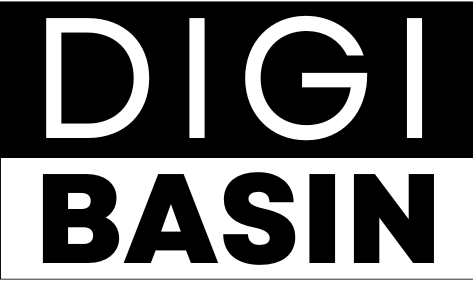Picking the right agency can feel like choosing a co-founder. After all, they’ll touch your product pages, ad spend, and customer funnel. Pick well and you accelerate growth. Pick poorly and you burn budget and time.
This guide walks you through what matters, what to expect, and the exact questions to ask so you end up with a partner who drives revenue, not just vanity metrics.
Why Choosing the Right E-commerce Partner Matters Right Now
Digital ad budgets are larger than ever. U.S. brands spent over $300 billion on digital advertising in 2024, indicating the growing competitiveness of paid channels. Therefore, you need a specialist who treats ad spend like capital, not marketing noise.
Moreover, average e-commerce conversion rates are low; under 2% on many sites, so every traffic dollar must be optimized for conversion, not clicks alone. In short, your agency must be skilled at both traffic acquisition and conversion optimization.
What an E-commerce Digital Marketing Agency Does
An e-commerce digital marketing agency specializes in selling physical or digital products online. They commonly manage paid search, shopping campaigns, social ads, email flows, SEO, site speed, and conversion rate optimization (CRO).
If you need a narrower partner, search specifically for an e-commerce PPC agency, which focuses on paid acquisition across Google, Microsoft, and social platforms and often runs shopping campaigns and dynamic remarketing.
Also Read:
- How Does Sales Tax Work in E-commerce?
- 10 Best E-commerce Payment Gateways for African Sellers
- How to Price and Sell Lightroom Presets Online Without Design Skills
Budget Expectations
Agencies vary a lot in price. Smaller agencies and freelancers can start at a few thousand dollars per month.
Meanwhile, full-service e-commerce agencies commonly charge mid-market retainers from roughly $4,500 monthly and rise sharply for larger, multi-channel programs. If your store is scaling fast, expect to invest more to get the expertise you need.
You should also budget ad spend separately. That means your agency fee plus ad media costs equals your true monthly marketing budget. Align early on how media will be billed and who controls ad accounts.
The 9 Criteria That Separate Good Agencies From the Rest
Below are the criteria I use when evaluating agencies. Read them, and then compare shortlisted agencies against each item.
1. Proven e-commerce outcomes, not just case studies
Look for detailed case studies showing revenue lifts, ROAS improvements, or A/B test results. Ask for before/after numbers and the timeframe. Also request references you can call.
2. Platform experience
Make sure they know your stack. Shopify work is different from Magento or BigCommerce work. If you run Google Shopping or Facebook Dynamic Ads, confirm they have hands-on experience setting those campaigns up, managing feeds, and troubleshooting disapprovals.
3. A clear measurement model
Good agencies define success with revenue, ROAS, CAC, and LTV metrics. Ask how they track these and whether they use server-side tracking or GA4-plus-server setups. Then, confirm how often they report and which dashboards they’ll give you.
4. Technical and creative capabilities
Driving traffic is half the job. Conversions are the other half. Therefore, your agency should offer CRO, creative production, and landing-page optimization. In many cases, small creative changes produce outsized ROI.
5. A transparent pricing model
Watch for vague “custom pricing” that hides fees. You want clarity: retainer, percentage of spend, performance bonus, or hybrid. Also, confirm minimum contract terms and exit clauses.
6. Data and tooling
Ask which ad, analytics, and bidding tools they use. Reputable agencies use automated bidding, product feed tools, and clean reporting stacks. If they promise “secret methods” without showing tools, be cautious.
7. Team and communication
Who will actually work on your account? Meet them. Frequent churn or endless account managers can kill momentum.
8. Industry knowledge and compliance
If you sell regulated items (supplements, CBD, or products for kids), confirm the agency’s experience with compliance and platform policy enforcement.
9. Cultural fit and strategic thinking
Finally, choose an agency that asks about product margins, churn, and competitive positioning. If they only care about ad creatives, they are not a strategic partner.
What to Expect from an E-commerce PPC Agency
An e-commerce PPC agency should manage shopping and search campaigns, remarketing, and feed optimization. They should test search vs shopping, measure ROAS by channel, and show how paid efforts feed into email and retention programs.
Additionally, they should be able to explain bid strategies and how those strategies change as you scale. Ask for sample campaign structures and examples of how they improved ROAS for similar clients.
Smart Questions to Ask Every Agency
- “Show me one recent case where you increased e-commerce revenue — and explain the exact tactics.”
- “How do you structure Google Shopping vs. Search campaigns for a new product?”
- “Which KPIs will we track weekly, and how do they map to revenue?”
- “Who will manage our day-to-day work, and who is the strategic lead?”
- “What tooling do you use for feed optimization, tracking, and reporting?”
- “How do you handle creative testing and landing page changes?”
- “Give me three actions you would take in month one.”
You can find long lists of additional questions in agency-screening resources. These ready questions will quickly expose vague answers and build confidence when an agency is precise.
Stop the Conversation If You Hear These
- Promises of guaranteed rankings or specific revenue numbers without a clear plan.
- No proof of past results in e-commerce.
- A one-size-fits-all pitch that ignores your margins, SKU complexity, and seasonality.
- Reluctance to give references or allow meetings with current clients.
How to Test an Agency Before You Sign a Long Contract
Run a 90-day pilot with clearly defined deliverables and KPIs. First, set a modest ad test budget. Then, ask the agency to deliver a prioritized plan for month-1 (technical fixes and quick wins), mont–2 (scaled campaigns and testing), and month-3 (optimization and measurement). A well-run pilot will show competence and cultural fit fast.
Also Read:
- Top 5 Digital Tools to Create and Sell Online Courses
- How to Use TikTok Ads for Blogging Arbitrage: A Step-by-Step Guide
- How to Integrate Print-on-Demand with Amazon FBA for Passive Income
Final Thoughts
Choosing an e-commerce digital marketing agency is a business decision, not a marketing purchase. You are buying expertise that will touch revenues, margins, and the customer experience.
Therefore, prioritize agencies that show measurable e-commerce results, clear measurement frameworks, and an ability to align paid efforts with conversion optimization. Remember, a specialized e-commerce PPC agency can be invaluable when you need to scale paid channels quickly.
Yet, the smartest investments pair paid growth with improved site experience and retention programs. The right partner will treat your ad budget like investor capital and will prove value with revenue, not impressions


















